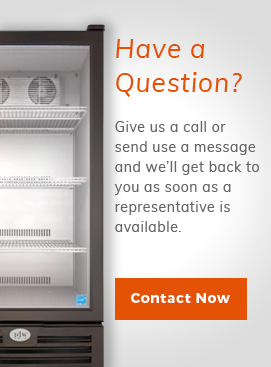The rising popularity of craft colas in today’s beverage market is undeniable. Riding on the meteoric success of other craft industries like beer, tea, and food, craft colas are bringing undeniable, and unique, changes to the soft-drink industry. Craft colas began popping up as regional, cottage industries that created distinct formulations which appealed to a broad audience. As their popularity began to gain steam, big players in the soft-drink industry began to see the potential for creating their own craft cola lines. These lines, as well as a few of the most popular regional varieties, are now available on shelves across the United States. In this article, we’ll look at a few of the key ways that craft colas are driving change in the soft-drink industry. Through innovation, creative marketing, and unique formulations, craft cola manufacturers are forcing the largest players in the soft-drink industry to adapt, improvise, and take on a new approach to both formulating and marketing their products.
1) Craft colas are bringing millennials back into the soft-drink fold.
One of the biggest changes that craft colas are driving in the industry is by appealing to the millennial demographic. Millennials have increasingly avoided soft-drinks due to their lack of nutritional content, their perceived negative impact on overall health, and their desire to purchase artisanal waters, teas, and other soft-drink alternatives. With the introduction of craft-colas, millennials are now becoming more likely to include a soft-drink in their beverage purchasing. There are many reasons that craft colas appeal to millennials more than non-craft soft-drinks. They are created with unique formulations, ingredients that are perceived as healthier, and are marketed to create a sense of shared experience between the purchaser and manufacturer. These forces have a demonstrated appeal with millennial consumers in a variety of beverage and food industries. The end result is more millennials drinking soft-drinks, which is beneficial for both craft cola producers and other soft-drinks that are still perceived as a less healthy alternative.
2) Craft colas are driving innovation across the entire soft-drink industry.
Through their unique formulations, use of non-traditional ingredients, appealing packaging, and clever marketing strategies, craft colas are forcing established soft-drink manufacturers to make changes. These changes are coming in multiple forms. The first is that the largest players in the soft-drink industry are beginning to bring smaller craft cola creators under the umbrella of their brand, allowing them to seize ever increasing shares of the craft market. The second change is that the marketing of traditional soft-drinks is undergoing a fundamental shift. In the past, traditional soft-drinks were marketed to accentuate their place as a tasty refreshment. Now, traditional soft-drinks are being marketed to highlight their natural ingredients, history, and overall benefit to the consumer. By making this shift, traditional soft-drink manufacturers are recognizing that in order for their products to stay relevant they need to be more than just refreshing. In order to be successful, soft-drinks have to be refreshing as well as impart some effect. This effect can be the perceived health benefit of natural ingredients, increased awareness through energy, or to create a sense of connection between the product and the consumer. In order to accomplish this, traditional soft-drink manufacturers are creating new lines that harness the power of natural ingredients, as well as components that impart a health benefit.
3) Craft colas are highlighting the power of social marketing.
Craft colas aren’t just driving innovation in the formulations of products. They are also forcing marketing departments to restructure in order to harness the power of social media and grassroots marketing to bring in new customers. While traditional soft-drink manufacturers have always used marketing successfully, the power of social marketing in the beverage industry has largely been demonstrated through the success of energy drink manufacturers and smaller players in niche beverage markets. The rapid rise in popularity for craft colas has as much to do with their image as it does with the product itself. Traditional soft-drink manufacturers have taken note of this, and are changing how they market their products on social media. Craft cola manufacturers have successfully brought their customers closer to their brand, increasing customer loyalty, and integrating their customers more fully into the success of their products. As the craft cola industry continues to grow and traditional soft-drink manufacturers put more products out on the market, expect to see the social media campaigns behind these products use new, innovative techniques to reach an expanding base of potential customers.



